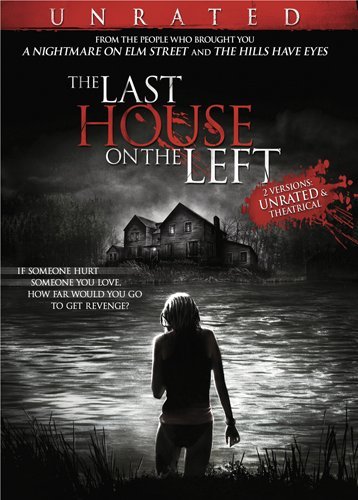All Nonfiction
- Bullying
- Books
- Academic
- Author Interviews
- Celebrity interviews
- College Articles
- College Essays
- Educator of the Year
- Heroes
- Interviews
- Memoir
- Personal Experience
- Sports
- Travel & Culture
All Opinions
- Bullying
- Current Events / Politics
- Discrimination
- Drugs / Alcohol / Smoking
- Entertainment / Celebrities
- Environment
- Love / Relationships
- Movies / Music / TV
- Pop Culture / Trends
- School / College
- Social Issues / Civics
- Spirituality / Religion
- Sports / Hobbies
All Hot Topics
- Bullying
- Community Service
- Environment
- Health
- Letters to the Editor
- Pride & Prejudice
- What Matters
- Back
Summer Guide
- Program Links
- Program Reviews
- Back
College Guide
- College Links
- College Reviews
- College Essays
- College Articles
- Back
The Last House on the Left
The Last House on the Left and The Virgin Spring are remarkably and surprisingly similar. Craven's remake of Bergman's classic (1960) Virgin Spring follows almost the same (albeit updated) story. From the crucial plot points to the subtle nuances, Craven's 1972 Last House on the Left is dedicated to remaining true to the original. One major difference, however, is the intensity. The Last House on the Left continues to shock even the most jaded horror fans, while The Virgin Spring takes a much more subtle approach. Craven is brutal, while Bergman fills you with an intriguing sense of dread. And of course, the setting is very different. All of this shows that while Craven based his movie on The Virgin Spring, he manages to make it fresh and surprising.
The plot is the same: two girls leave the comforts of their home, only to be apprehended and murdered. In fleeing, the killers find themselves staying with the parents of one of the girls. Simple, ironic, twisted. But there is a crucial difference… the content. Bergman's film features a beautiful, if not subtle, story. The tension builds in a way not entirely different to David Lynch's 1977 classic Eraserhead. Craven crafts an
in-your-face exploitation remake, inspiring movies like the 1978 I Spit on Your Grave and Gaspar Noe's Irreversible. Another major difference is the acting. Many of the actresses in Virgin Spring were clearly influenced by Maria Falconetti's role in the 1928 La Passion de Jeanne d'Arc. Actresses in The Last House on the Left, on the other hand, tended to underact.
Direction, cinematography, and lighting all weighed heavily on the films. Ingmar Bergman, as always, sets up breathtaking black and white shots on his 32 mm Alpha. Wes Craven let's his color Super16 take the back seat while he focuses on special effects and shock value. This is not necessarily a bad thing, especially mentioning that this is Craven's first movie and Bergman's 32nd. I loved seeing the two directors make the same movie. It's almost as though two of your friends witnessed the same event and took turns telling you about it. Although it is clear that this is a remake, the artistic interpretations were completely unique.
Similar Articles
JOIN THE DISCUSSION
This article has 0 comments.

